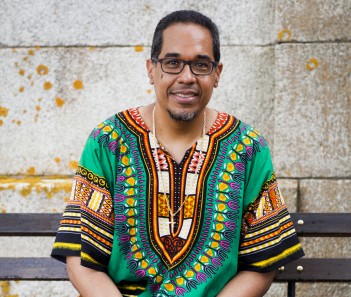On Wednesday, Oct. 5 the University of Puget Sound’s String Orchestra gave their first performance of the year, clocking in at just under 90 minutes.
Led by conductor Christophe Chagnard, the orchestra worked its way through three pieces by 20th century composers, and no two sounded alike.
The first was Samuel Barber’s “Adagio for Strings,” a shorter piece worked around a melodic ascending melody.
The second was Chagnard’s own “Roma,” a piece composed in 2010 which Chagnard dedicated to his guitar teacher Neil Andersson.
The piece is heavily influenced by the work of Django Reinhardt and the Gypsy jazz sound of Pearl Django.
Joined onstage by several soloists, the final ensemble included Chagnard as both conductor and guitarist, Andersson and Seattle guitarist Ron Peters on guitars and Professor Rob Hutchinson on bass, all backed by the string orchestra.
Chagnard wrote of the piece, “Roma is a boisterous dance. Its theme was composed two years ago…it has since become a staple of our Jazz Quintet repertoire and seems to have the ability to inspire listeners to move in some unexpected dances, revealing the ‘Gypsy’ in each of us.”
The audience certainly seemed to agree because as the performance wore on I noticed the majority of them were unconsciously tapping their feet in time.
As the piece ended, the string orchestra was greeted with their first standing ovation of the night.
Following “Roma,” Chagnard, Andersson, Peters and Hutchinson remained onstage to perform an encore Gypsy-jazz piece by Django Reinhardt.
The third piece was Dmitri Shostakovich’s Chamber Symphony in C minor, Op. 110a, which is an arrangement of a piece originally composed for a string quartet in 1960. An extremely sad piece, Shostakovich dedicated it “to the victims of fascism and war” and considered it his epitaph.
The string orchestra’s performance featured soloists Grace Youn and Bronwyn Hagerty and lasted almost exactly 22 minutes, after which the room was absorbed in complete silence for 22 seconds before Chagnard lowered his hands, allowing the audience to applaud.
“There were times when that song was frighteningly intense. It was heavy stuff,” enthralled audience member, sophomore Emerson Quarton said.
The audience gave a second, final standing ovation following the piece, and many proceeded out in silence, moved by what they had experienced.
Between the first and second pieces a small wind octet took the stage, performing Beethoven’s Rondino in E-flat.
Performers were Cravixtha Acheson, David Brookshier, Andrew Friedman, Jason Lazur, Chloe Thornton, Matthew Wasson, Kathryn Murdock and Emily Neville.
Despite being a massively new group of performers (almost half of the orchestra are freshmen), the string orchestra has seamlessly transitioned into the new school year with this performance.
Keep an eye (and ear) out for more to come.

